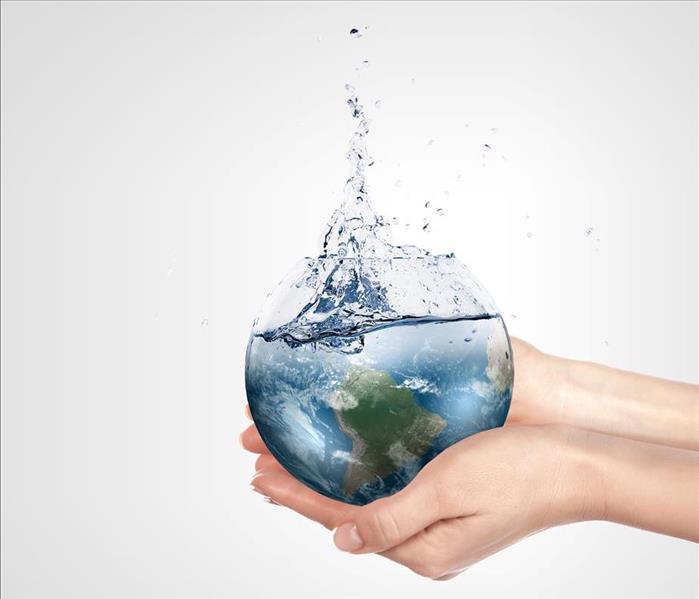Best Water Upgrade To Reduce Commercial Water Consumption
10/7/2021 (Permalink)
Many commercial operations use a large amount of water. With extreme weather events becoming more common and straining the water supply in many areas, water conservation is one of the most critically important water issues faced by environmentalists.
6 Water Upgrade Tips
Conserving water is good for both the environment and your business. Using less water can lower your water bills, allow you to take advantage of tax incentive programs, and improve your reputation with customers. These tips can help you conserve water in your commercial buildings.
1. Install Low-Flow Fixtures
Low-flow fixtures, such as high-efficiency toilets, faucet aerators, and low-flow showerheads can reduce water consumption in your commercial buildings. This is particularly important for operations, such as hotels, that utilize many of these fixtures. Upgrading your fixtures can also help you qualify for LEED certification and may make you eligible for initiatives offered by the EPA or your local government in South Boston, VA. Additionally, updating your fixtures can help you avoid water damage caused by aging plumbing.
2. Insulate Pipes
When hot water pipes are not insulated, users must wait for hot water to start coming out of the tap, which wastes water. Insulting the pipes eliminates the need to wait for the water to get hot and controls heat loss from the pipes, which saves the energy required to heat the water.
3. Optimize Cooling Towers
Cooling towers use a large amount of water through drift, evaporation, and blowdown. By carefully monitoring and controlling the blowdown quantity of your cooling towers, you can significantly reduce the amount of water used. You can achieve this by maximizing cycles of concentration. Increase your cycles from three to six to reduce make-up water by 20% and blowdown by 50%. If you don't already have monitoring technology installed, consider installing it to make this process easier.
4. Regulate Water Pressure
Pipe bursts are one of the most common water issues that lead to water waste. A broken pipe can waste thousands of gallons of water, which is not only bad for water conservation but can cause significant damage to your property, requiring water remediation services. Keep your building water pressure between 65-80psi to avoid damaging fixtures and increasing your chance of a burst pipe.
5. Add Rain Sensors To Your Irrigation System
Most people have probably driven past a commercial sprinkler system running in the middle of a rainstorm. You can avoid wasting water this way by adding rain sensors to your irrigation system. The sensors shut down your irrigation system when rain is detected and return the system to its regular schedule when the rain stops.
6. Utilize Water Monitoring Technology
A smart water monitoring system can provide you with data about your daily, hourly, and monthly water usage. The data from monitoring systems can help you judge how well your conservation efforts are working and spot any unexpected increases in water use.
Conserving water is one of the most important water issues that commercial operations have direct control over. These tips can help you do your part to ensure everyone has access to water now and in the future.




 24/7 Emergency Service
24/7 Emergency Service
